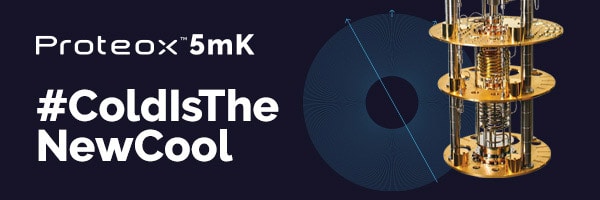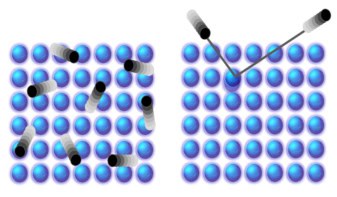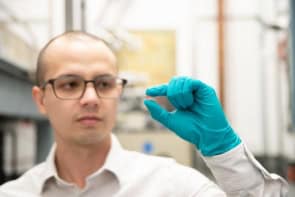Available to watch now, this webinar explores the Proteox5mK system from Oxford Instruments, the world’s coldest commercially available continuous operation Cryofree® dilution unit
Want to learn more on this subject?

Low-electron temperatures are a key requirement to explore exotic quantum states such as Majorana fermions and Fibonacci particles, with potential applications towards topological qubits and next-generation quantum processors.
This webinar introduces the Proteox5mK system from Oxford Instruments, an ultra-low base temperature system designed to allow researchers to achieve their lowest electron temperatures for improved resolution in quantum transport measurements, such as the fractional quantum hall effect.
Further benefits are discussed, with the high cooling power and low vibration applicable to a wider range of applications.
Following this, Dr Levitin talks about the benefits of low temperature for research including electrons in 2D electron gas and semiconductor nanodevices, fragile ordered states in heavy-fermion metals, and bulk topological superconductors.
During the Q&A we also welcome Dr Harriet van der Vliet, the quantum engineer at Oxford Instruments NanoScience to join the team.
Want to learn more on this subject?
 James Robinson graduated with a materials science degree from the University of Oxford. He gained a background in plasma technology prior to joining Oxford Instruments Nanoscience as a product manager for the company’s ultra-low temperature systems. Responsible for the new Proteox® system, James has developed a vast knowledge of its usability and unique features that makes it an ideal alternative tool for the low-temperature research.
James Robinson graduated with a materials science degree from the University of Oxford. He gained a background in plasma technology prior to joining Oxford Instruments Nanoscience as a product manager for the company’s ultra-low temperature systems. Responsible for the new Proteox® system, James has developed a vast knowledge of its usability and unique features that makes it an ideal alternative tool for the low-temperature research.




